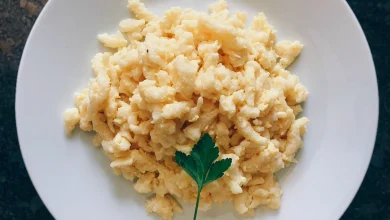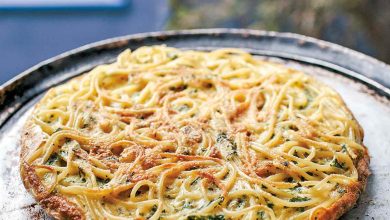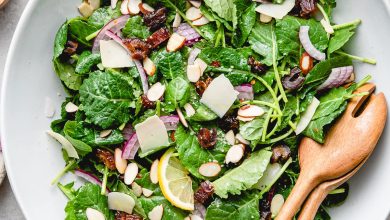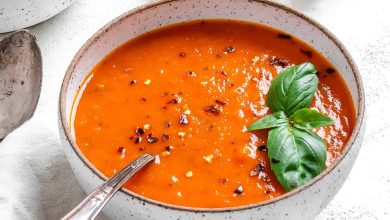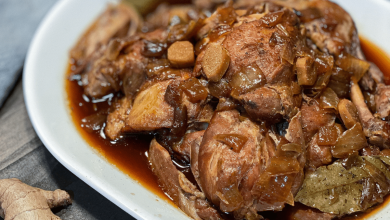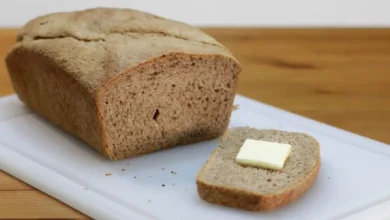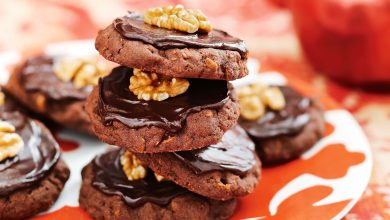A Great Dill Sauce
Certainly! A dill sauce is a flavorful condiment often made with yogurt or sour cream as a base and infused with fresh dill, lemon juice, and other complementary ingredients. It’s commonly used as a topping or dipping sauce for various dishes, particularly seafood.
Recipe: Dill Sauce
Ingredients:
- 1 cup plain yogurt or sour cream
- 2 tablespoons fresh dill, finely chopped
- 1 tablespoon lemon juice
- 1 teaspoon Dijon mustard
- 1 clove garlic, minced
- Salt and pepper to taste
Recipe Instructions:
- In a mixing bowl, combine the plain yogurt or sour cream, fresh dill, lemon juice, Dijon mustard, and minced garlic.
- Mix well until all the ingredients are thoroughly incorporated.
- Season the sauce with salt and pepper according to your taste preferences. Start with a small amount and adjust as needed.
- Taste the sauce and adjust the lemon juice and dill quantities if desired.
- Cover the bowl with plastic wrap or a lid and refrigerate for at least 30 minutes before serving. This allows the flavors to meld together.
Steps to Prepare:
- Gather all the required ingredients and utensils.
- Finely chop the fresh dill and mince the garlic clove.
- In a mixing bowl, combine the plain yogurt or sour cream, chopped dill, lemon juice, Dijon mustard, and minced garlic.
- Use a spoon or whisk to thoroughly mix the ingredients until they are well combined.
- Season the sauce with salt and pepper, tasting as you go to achieve the desired flavor.
- Adjust the amounts of lemon juice and dill if needed to balance the flavors.
- Once the sauce is well-mixed and seasoned to your liking, cover the bowl and place it in the refrigerator.
- Allow the sauce to chill for at least 30 minutes. This resting period allows the flavors to develop and intensify.
- After the sauce has chilled, it’s ready to be served. Use it as a topping for grilled fish, roasted vegetables, or as a dip for appetizers.
Preparation Time:
- The preparation time for this dill sauce is approximately 10-15 minutes.
- Additional time is needed for the sauce to chill in the refrigerator, which takes about 30 minutes.
History:
The history of dill sauce is closely tied to the use of dill as an herb in culinary traditions. Dill has been used for centuries to add flavor and freshness to various dishes. The combination of dill, yogurt or sour cream, and other ingredients in a sauce likely evolved as a way to enhance the taste of foods, particularly those with a mild flavor profile like fish or vegetables.
Remember that recipes can vary, and you can adjust the ingredient quantities to suit your taste preferences. Enjoy your homemade dill sauce as a delightful addition to your culinary creations!
Certainly! Here are the nutrition facts and health information for a typical serving of Dill Sauce:
Nutrition Facts (per serving, approximately 2 tablespoons):
- Calories: ~40
- Total Fat: ~3g
- Saturated Fat: ~2g
- Cholesterol: ~10mg
- Sodium: ~40mg
- Total Carbohydrates: ~2g
- Sugars: ~1g
- Protein: ~1g
Health Information:
- Calories: Dill sauce is relatively low in calories, making it a suitable addition to your meals without significantly impacting your daily caloric intake.
- Total Fat: The fat content comes from ingredients like yogurt or sour cream. While it contributes to flavor and texture, it’s advisable to consume such sauces in moderation due to their fat content.
- Saturated Fat: The saturated fat content is also relatively low, which is generally good for heart health.
- Cholesterol: The cholesterol content is moderate, primarily coming from ingredients like yogurt or sour cream. If you’re watching your cholesterol intake, consider portion control.
- Sodium: The sodium content is relatively low, but it’s worth monitoring if you’re on a low-sodium diet.
- Carbohydrates: Dill sauce has a minimal carbohydrate content, mainly from dairy products. It’s a suitable option for those who are watching their carb intake.
- Sugars: The sugar content is relatively low and comes naturally from dairy products. It’s not a significant source of added sugars.
- Protein: Dill sauce provides a small amount of protein, primarily from the yogurt or sour cream. While it’s not a substantial protein source, it contributes to the overall nutritional profile.
Health Tips:
- Dill sauce can be a flavorful way to enhance the taste of dishes, particularly vegetables, seafood, and grilled meats.
- Since the sauce contains dairy products, it’s a source of calcium and probiotics, which can contribute to bone health and gut health, respectively.
- Be mindful of portion sizes, as the fat and calorie content can add up if consumed excessively.
- Consider opting for low-fat or Greek yogurt to reduce the fat content while still enjoying the creamy texture.
- Pair the sauce with nutrient-rich foods like salads, steamed vegetables, or whole-grain dishes to create a balanced meal.
Remember that the nutrition facts provided are approximate and can vary based on specific ingredients and portion sizes. If you have specific dietary concerns or health goals, it’s a good idea to consult a registered dietitian or healthcare professional for personalized advice.

